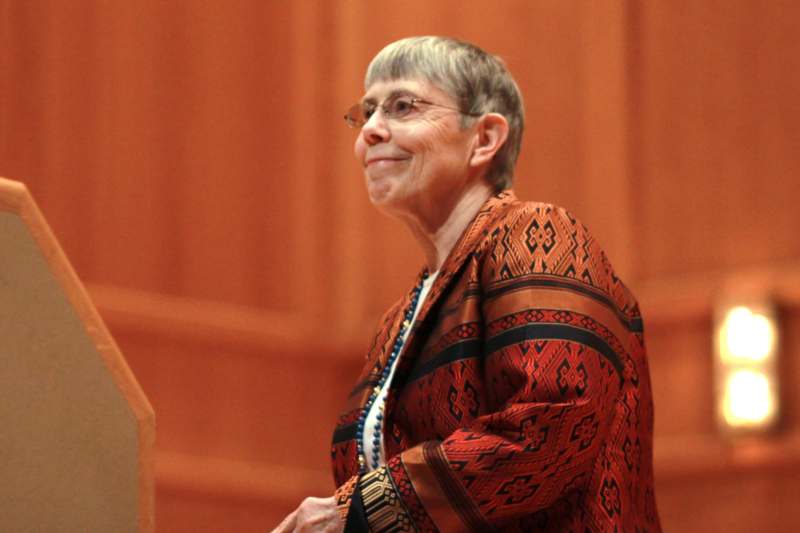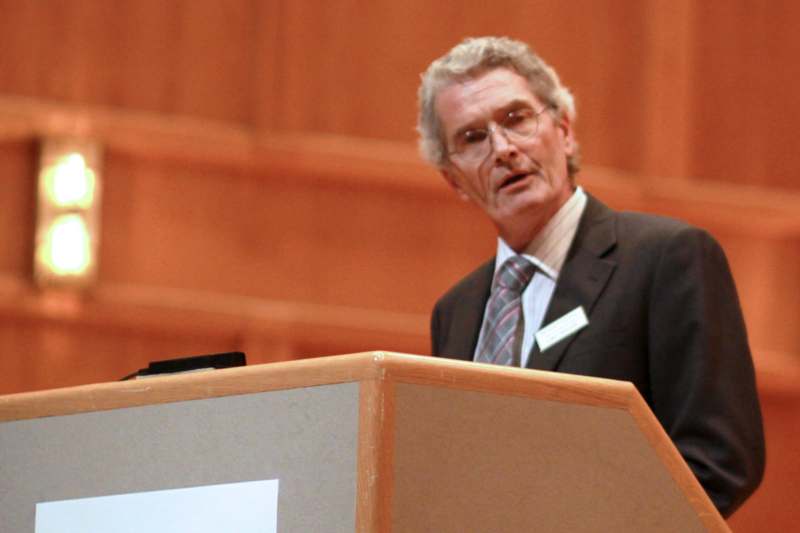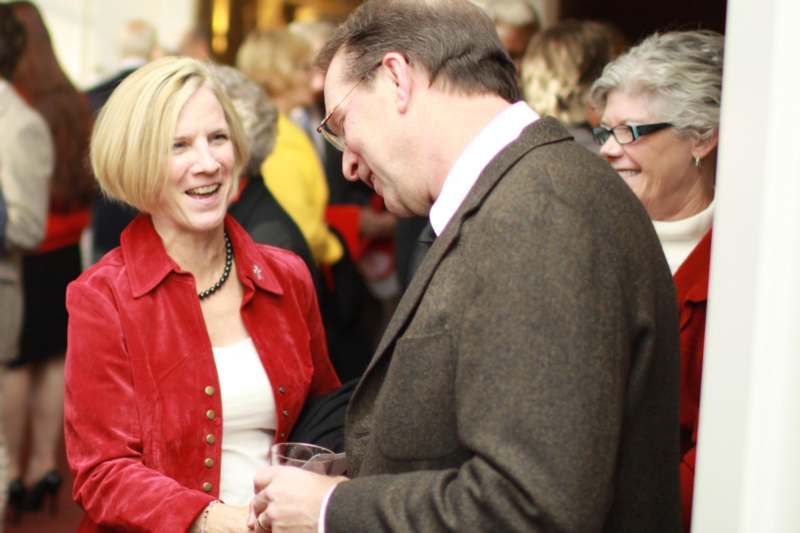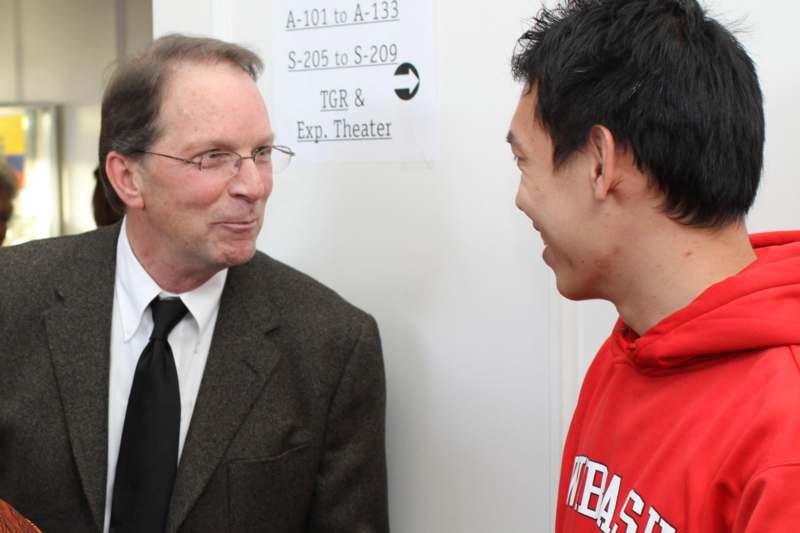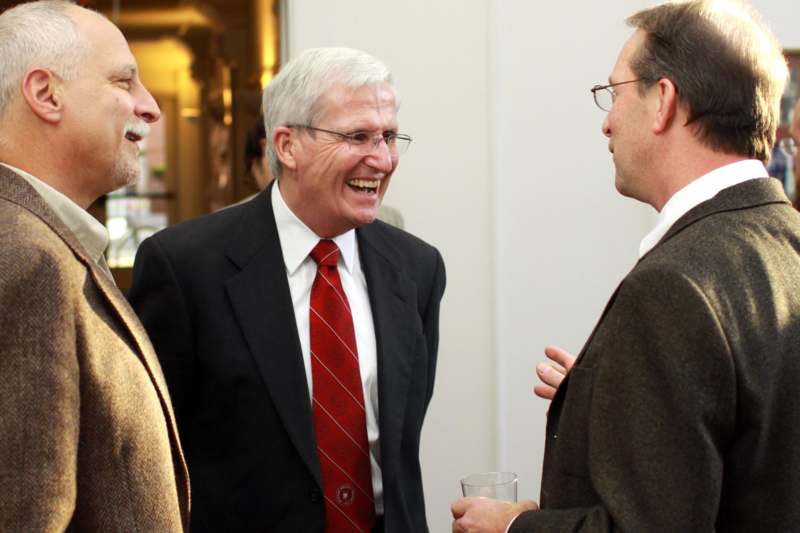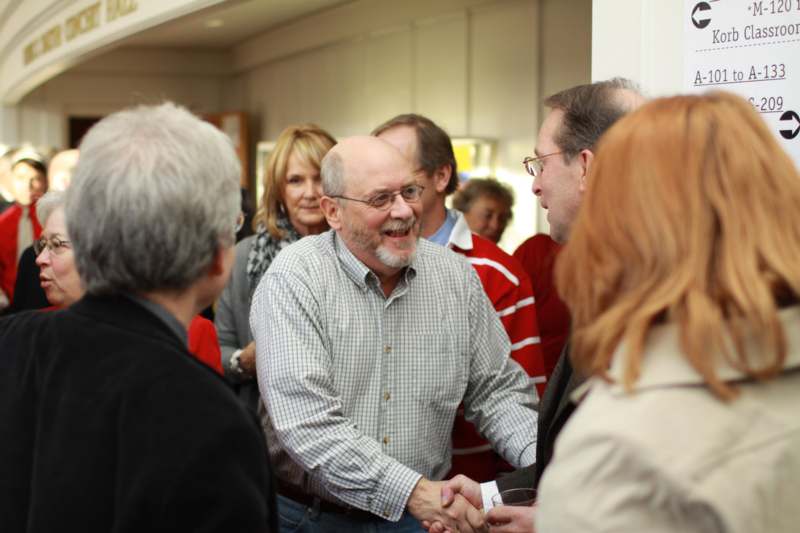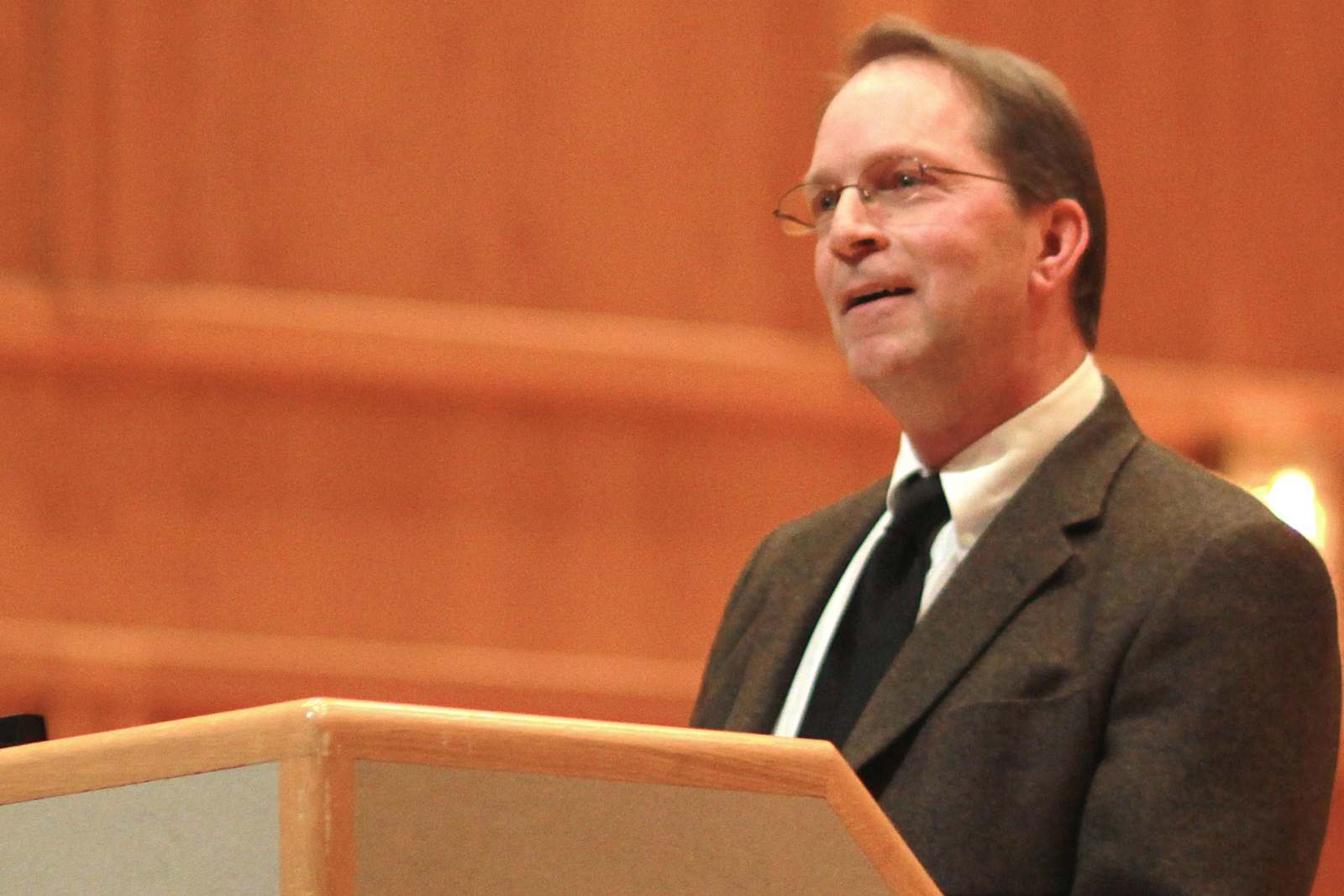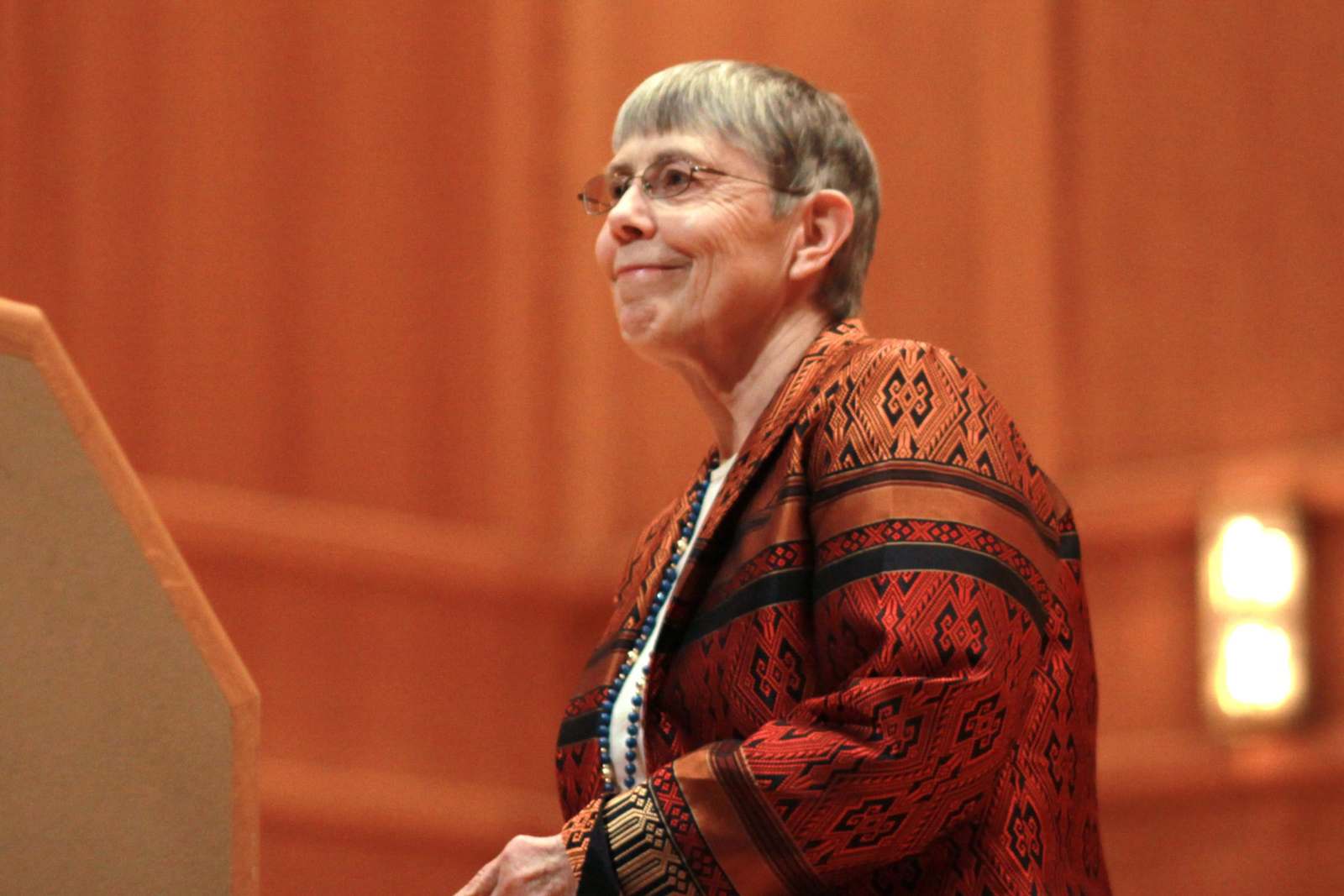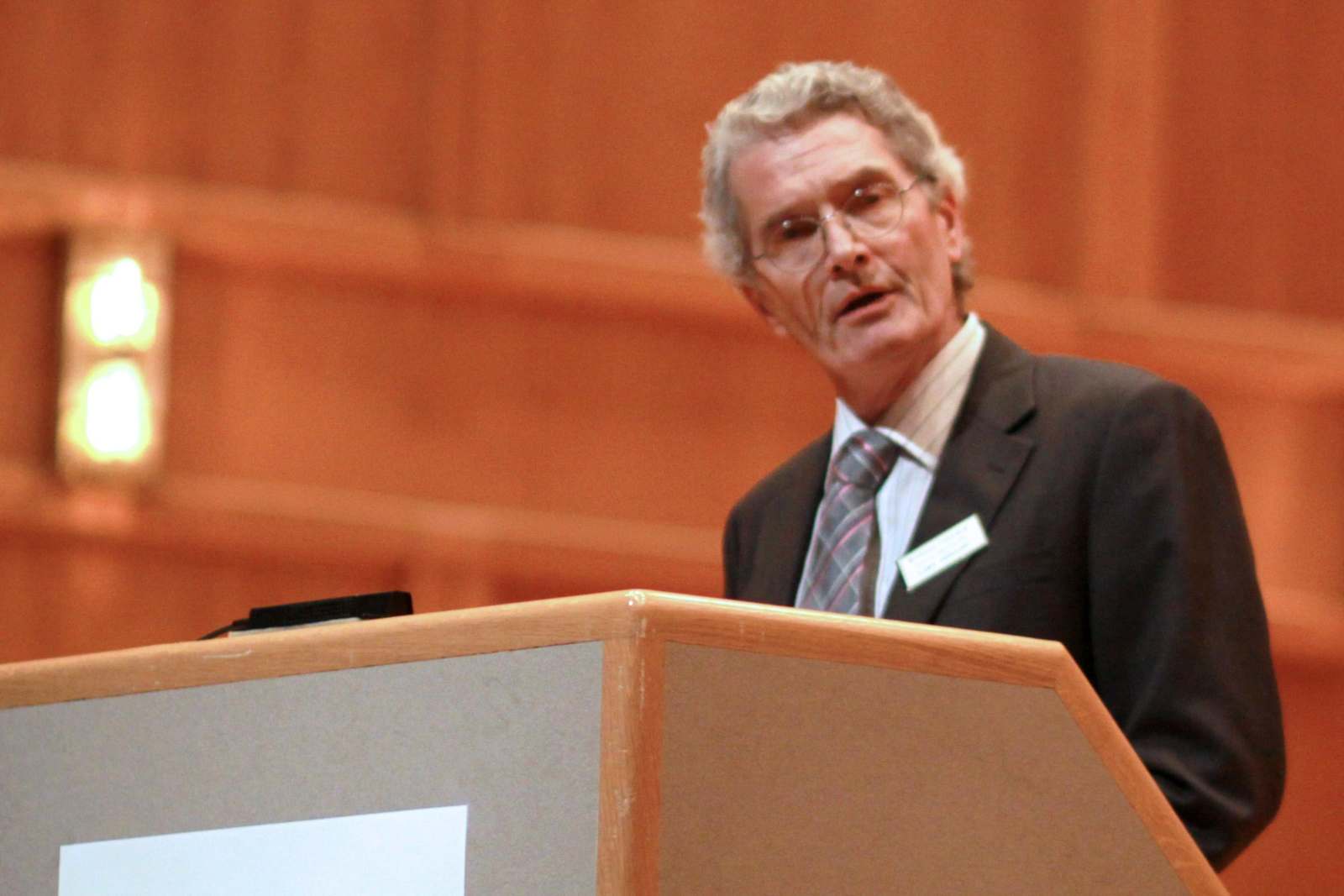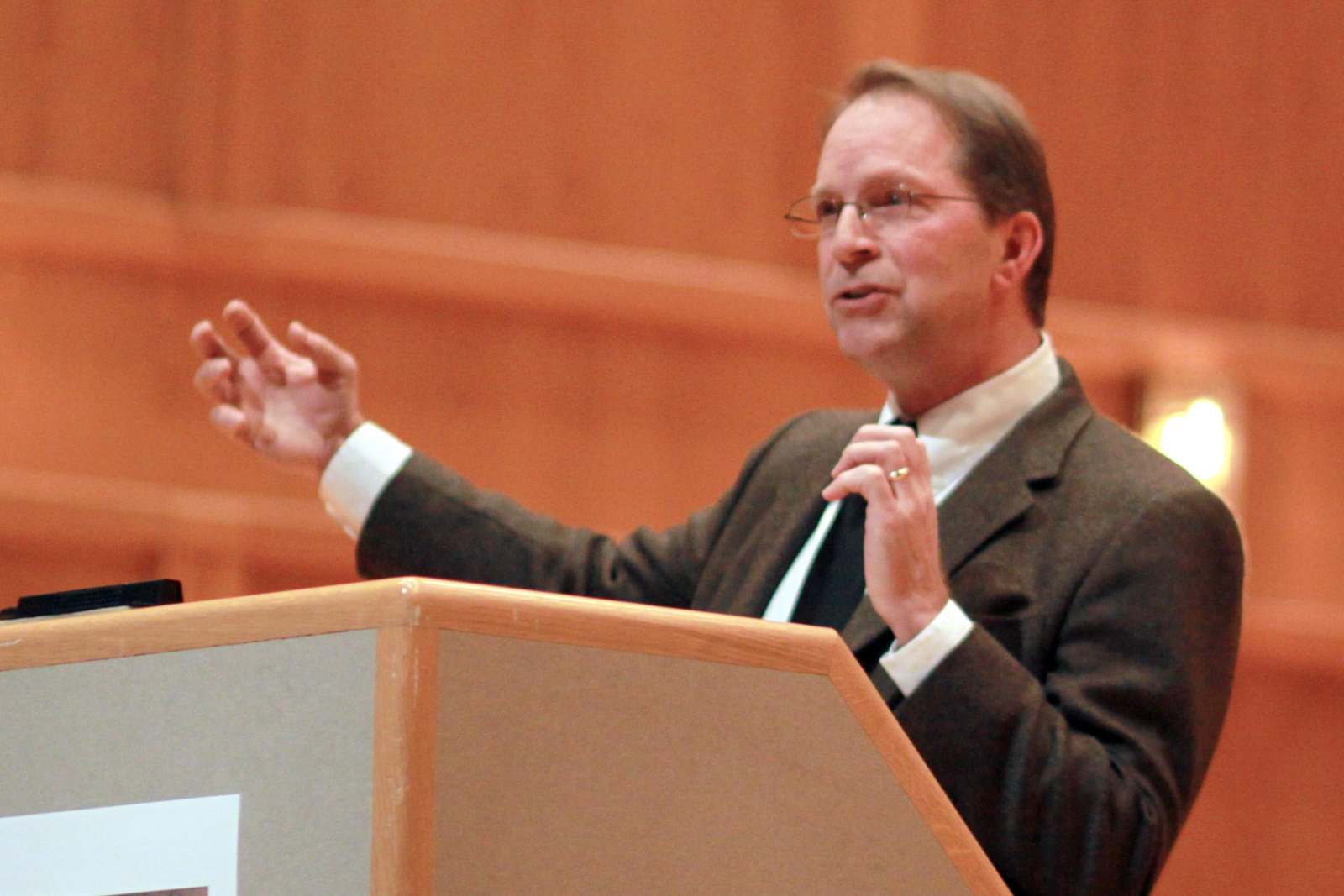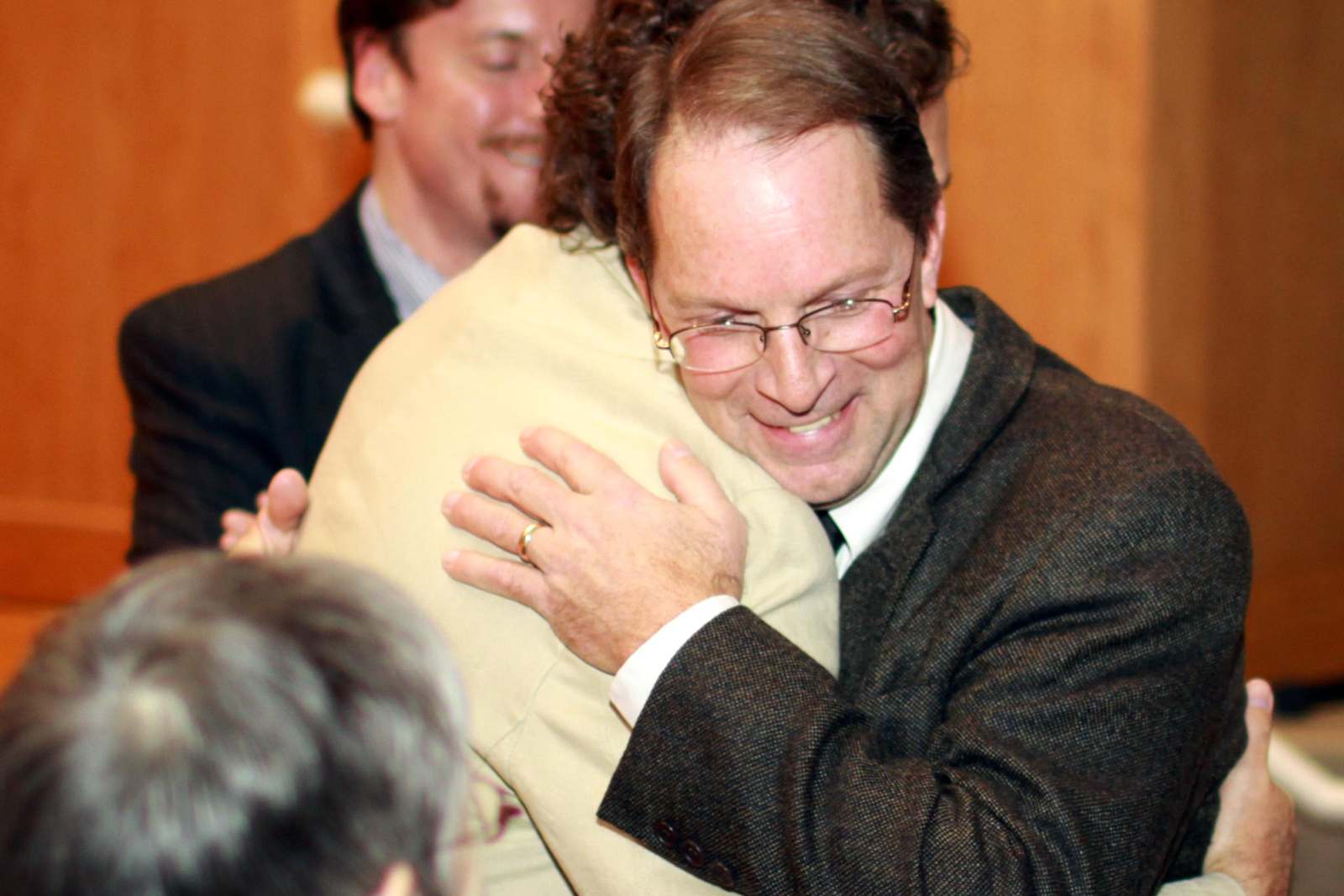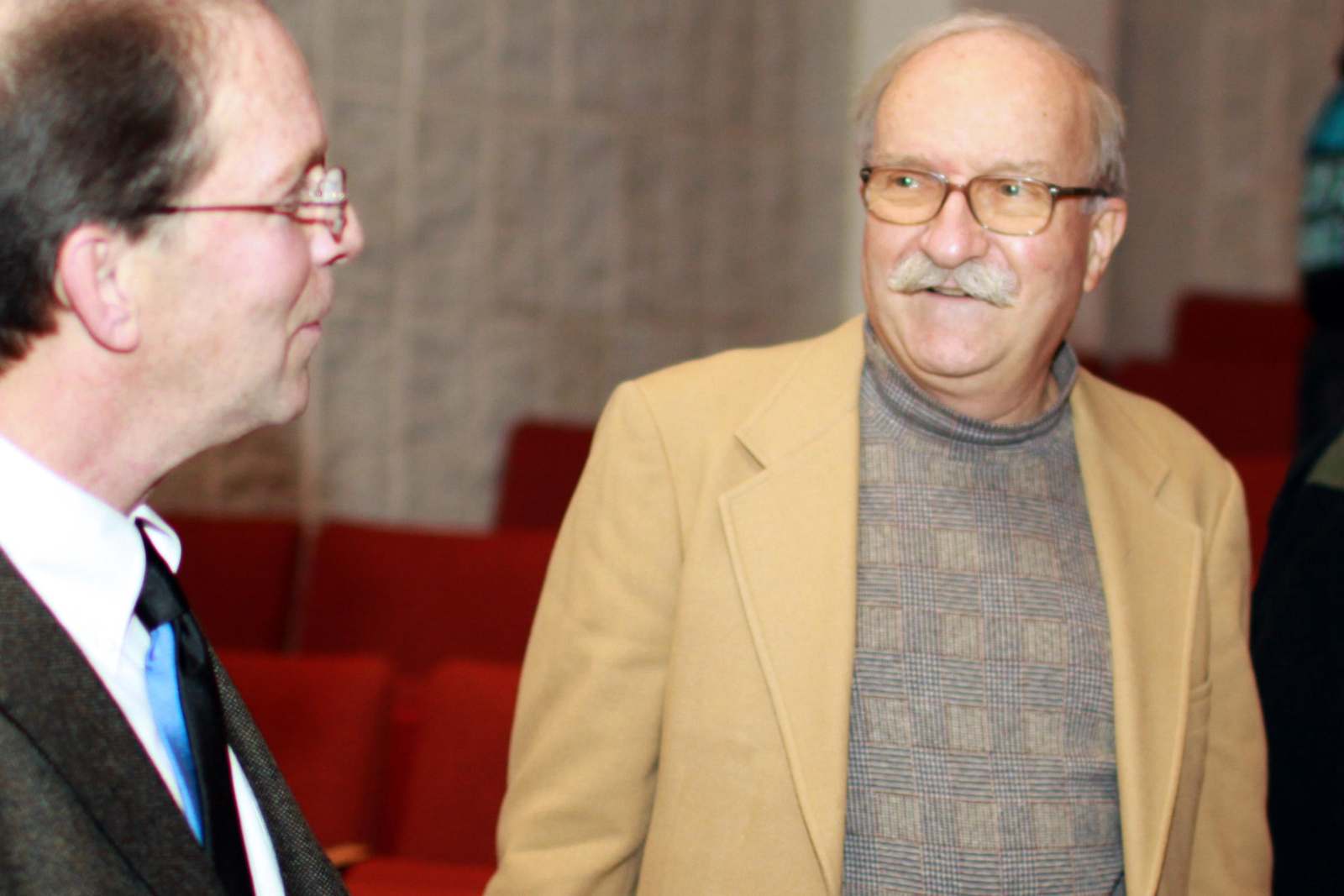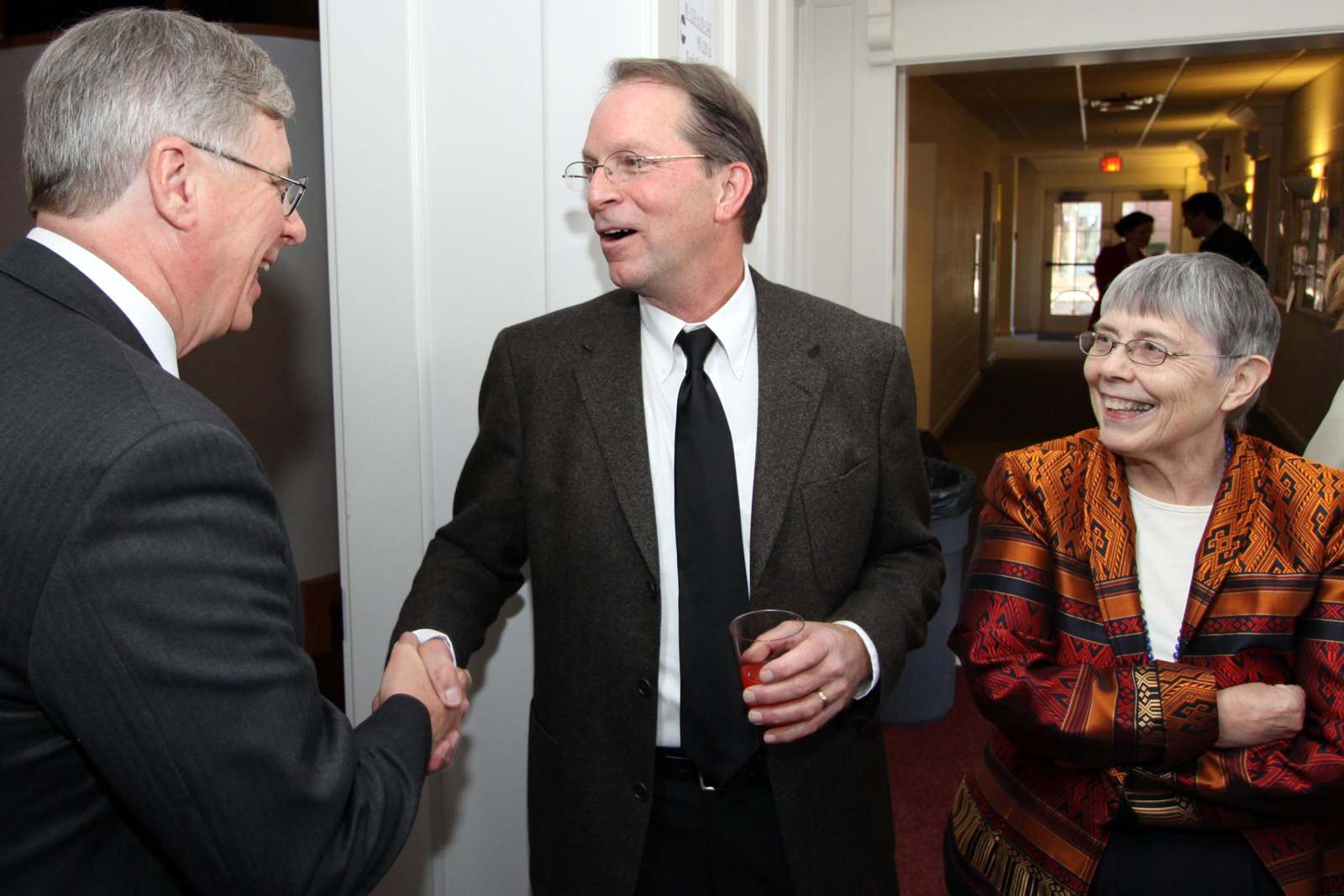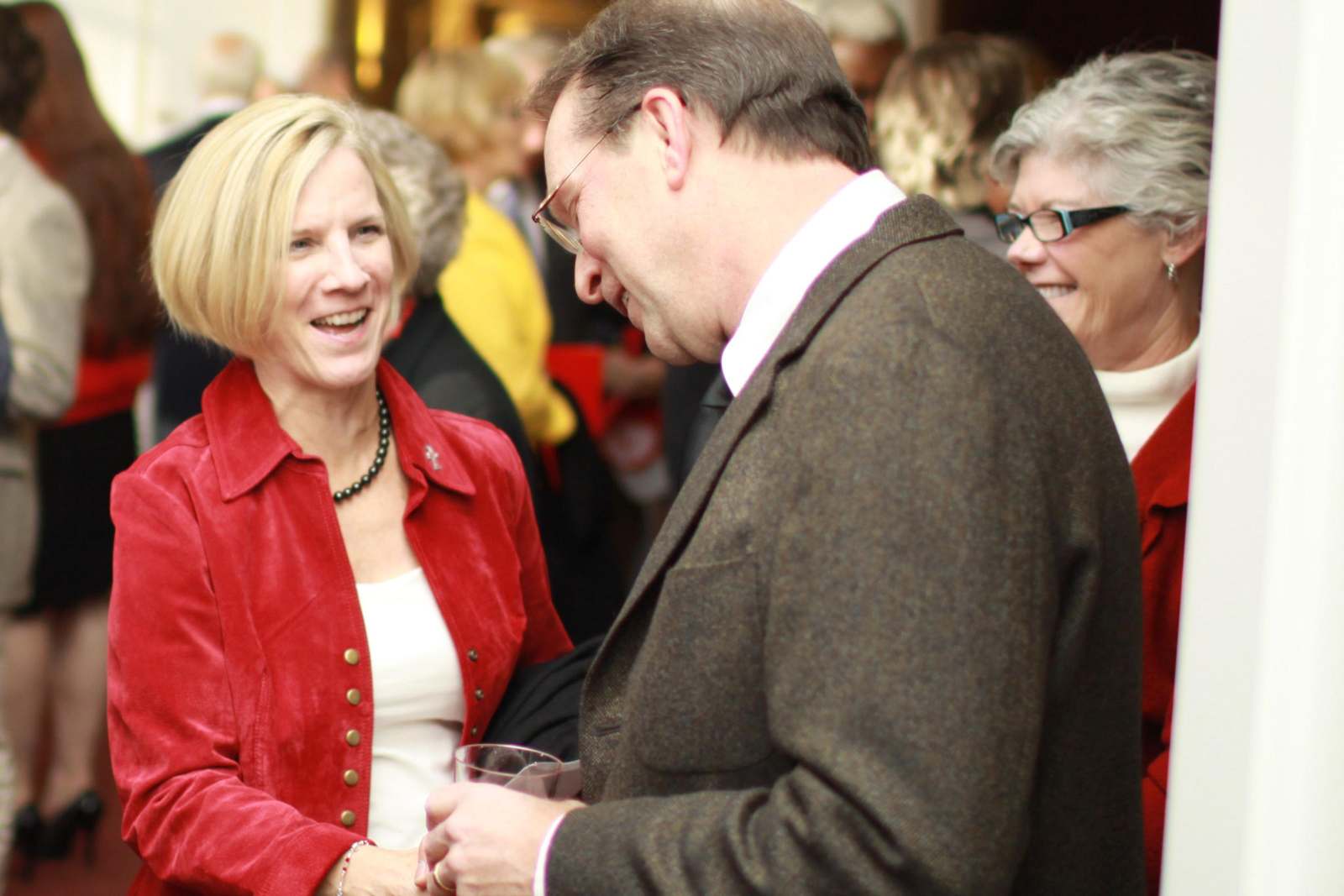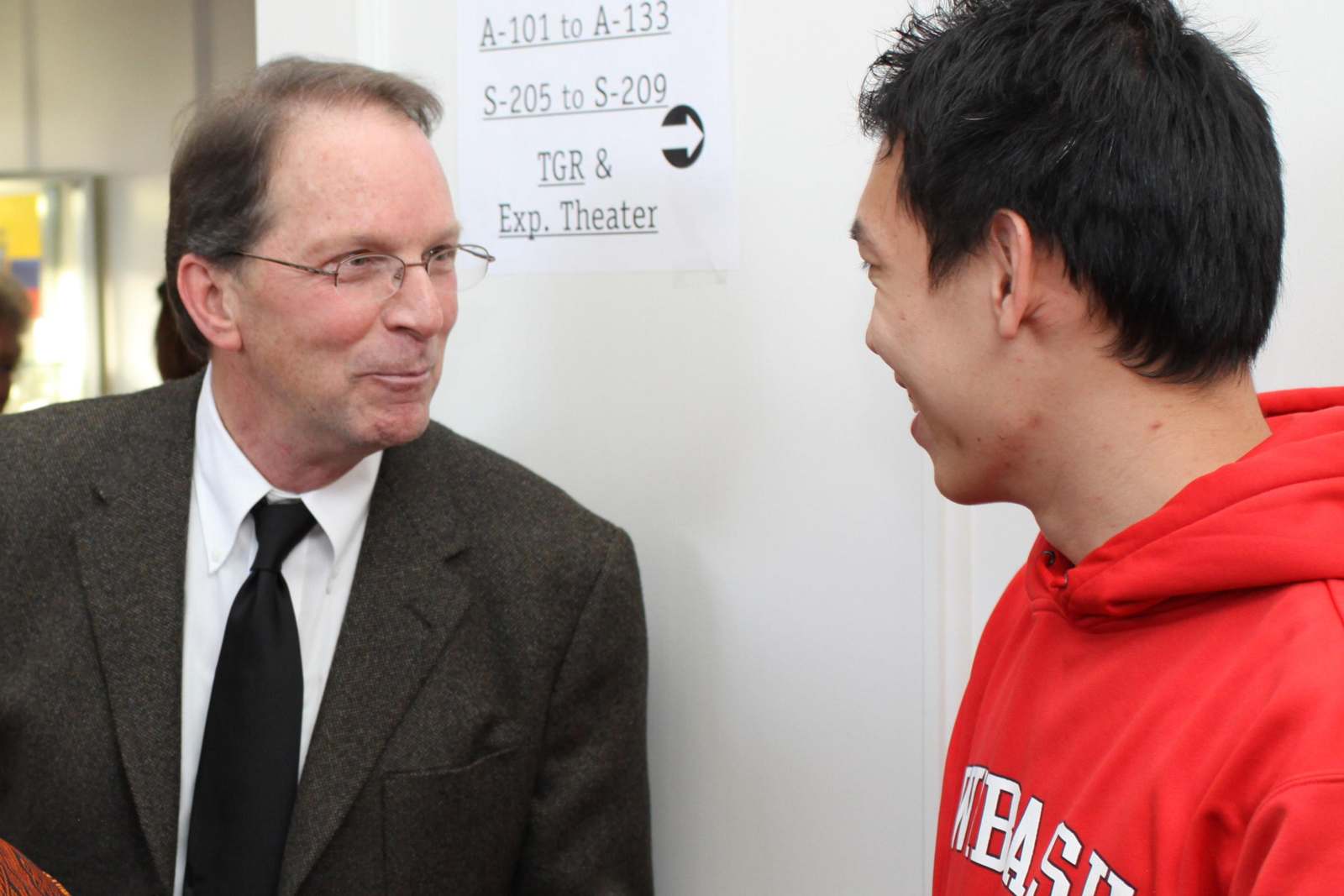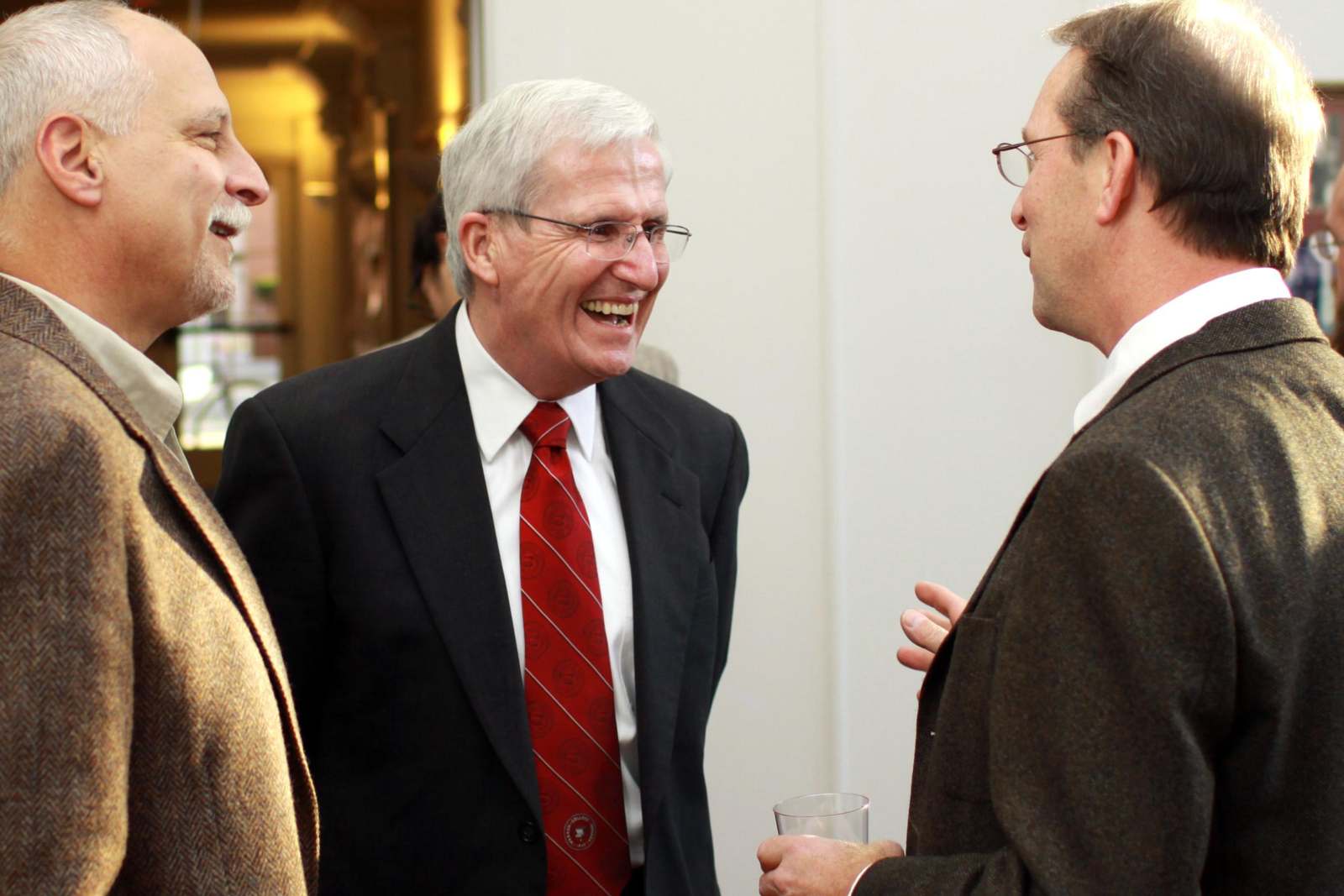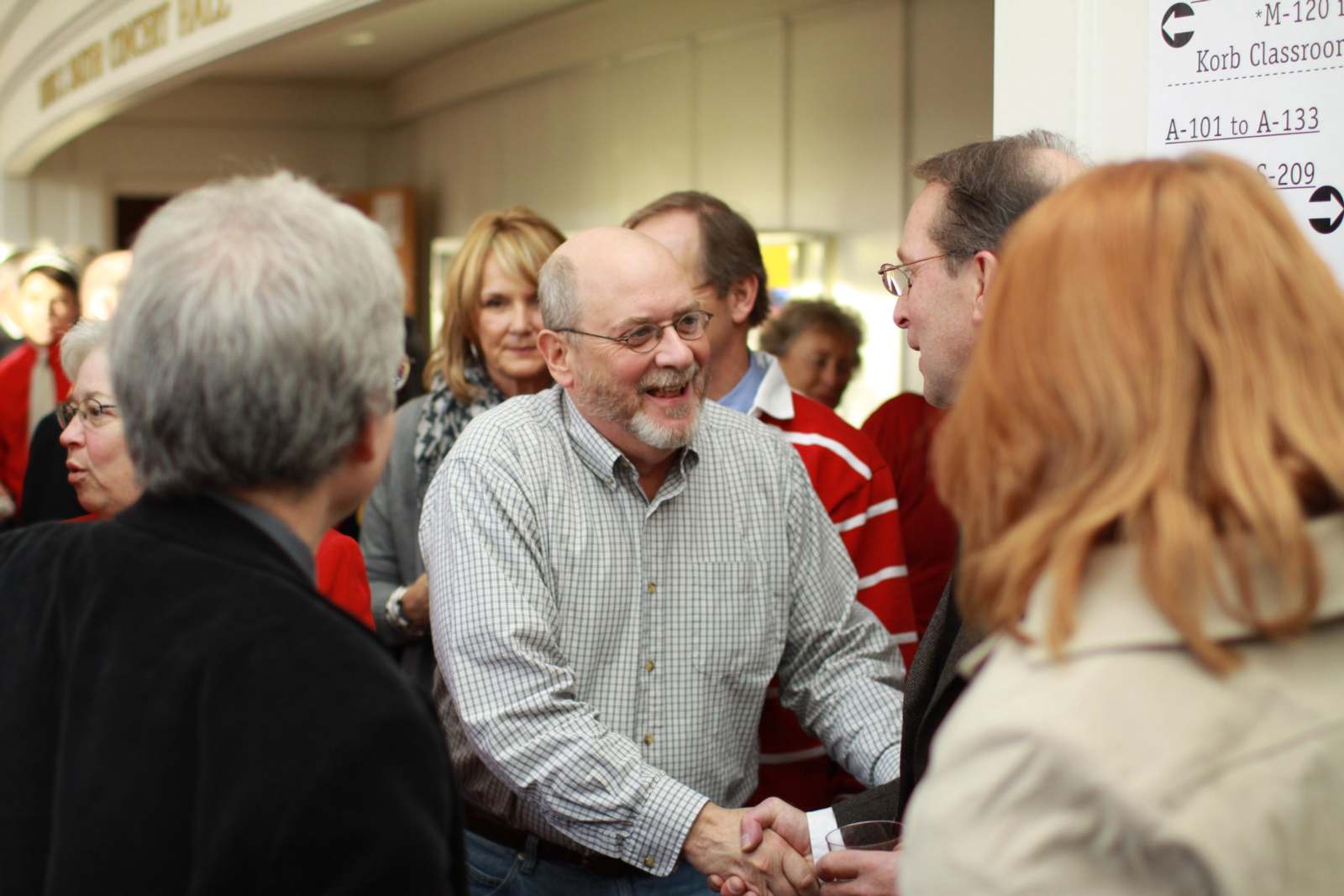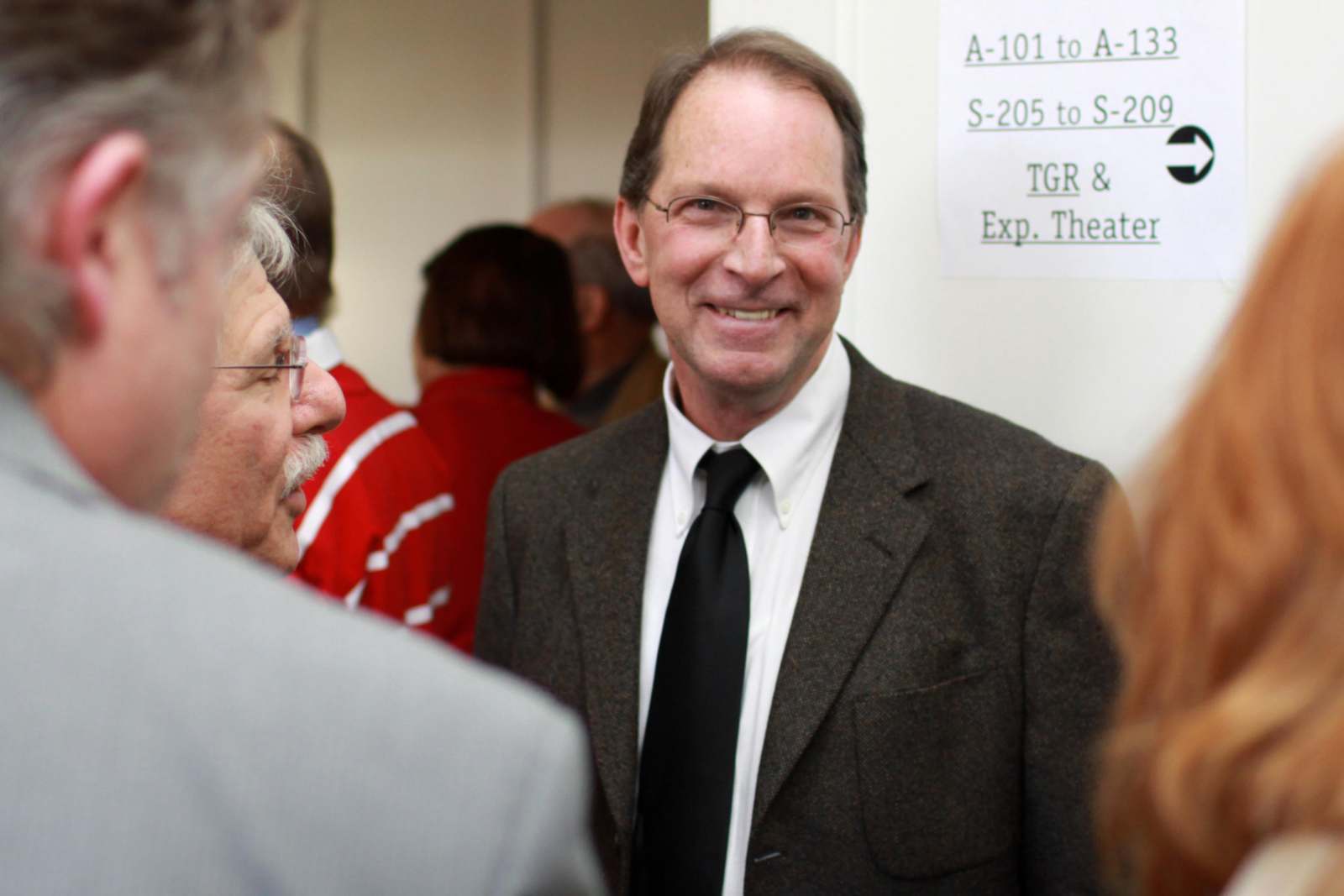Dwight Watson: 2010 LaFollette Lecture
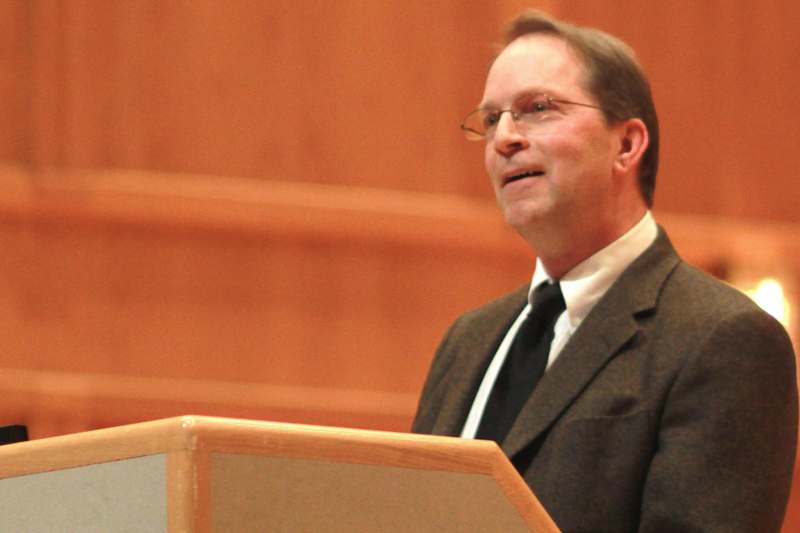
Professor of Theater Dwight Watson presents the 30th Charles D. LaFollette Lecture, "An Abridgement Between Nathaniel Dunn's and the Graveyard."
"There are ghosts in the wood paneling on the stage wall behind me. That’s right, ghosts. Some are more evident than others and they usually line up in threes or fours. Found in high and low panels, they are defined by line and shape.
"Some might call them—wood grain. And that, too, is acceptable.
"You see, depending on your creative temperament, academic proclivity, or “possession of the portable rules of the mind,” the possibilities that exist between the stage and the audience, provide, at least for me, inspiring prospects."
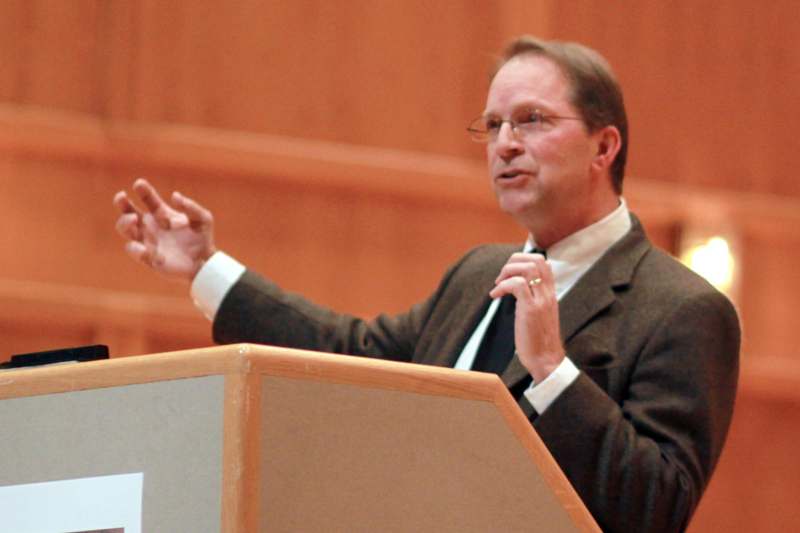
"For some time now I’ve been thinking about the relationship between dramatic writing, the audience, and that space in between. I think about the impact of the solo voice in monologue and the sound of multiple voices in dialogue. I think about the concert of ethereal ideas found not only in the full-length play but in the single word. It is this layering of language, the surge of memory and feeling, and the tease of “what if” that entice theater artist to open the book and shake meaning from it."
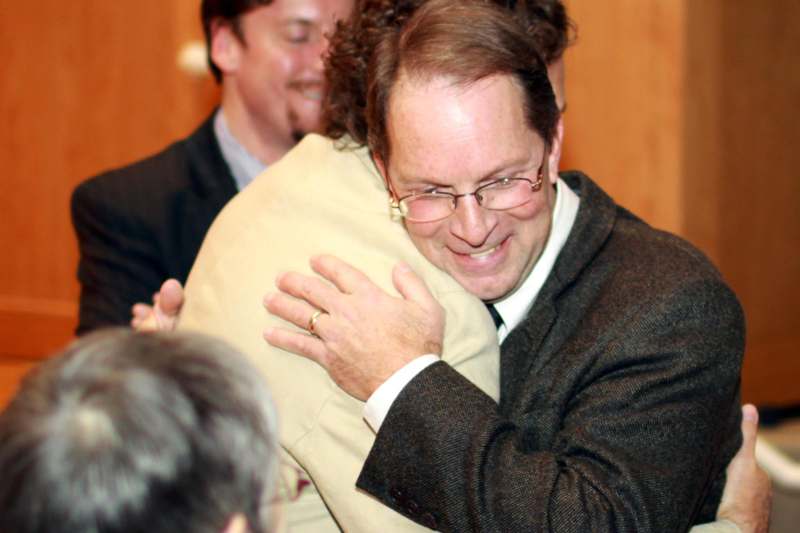
Professor Watson gets a congratulatory hug from theater department colleague Mike Abbott ’85.
"As a director I know my talent often stops at the scene shop door or upstage of the proscenium arch bathed in light on opening night. Leaving designers to design, and actors to act, I respectfully enter into the “marriage” because I know, using Lee Shulman’s words, “There are difficult intellectual and professional challenges that are nearly impossible to accomplish alone, but are readily addressed in the company of others.”
"Let me be clear about this, however. The intellectual power in collaboration—or to shift the idea to a broader context—interdisciplinary teaching, is dependent on individual talent and the praxis of disciplinary study. When Arthur Miller adapted Ibsen’s An Enemy of the People, he put it this way: “Before many can know something, one must know it!”. I would add, we must forge and secure the structural integrity of academic majors as we build a solid platform on which our students and their college can be lifted up."
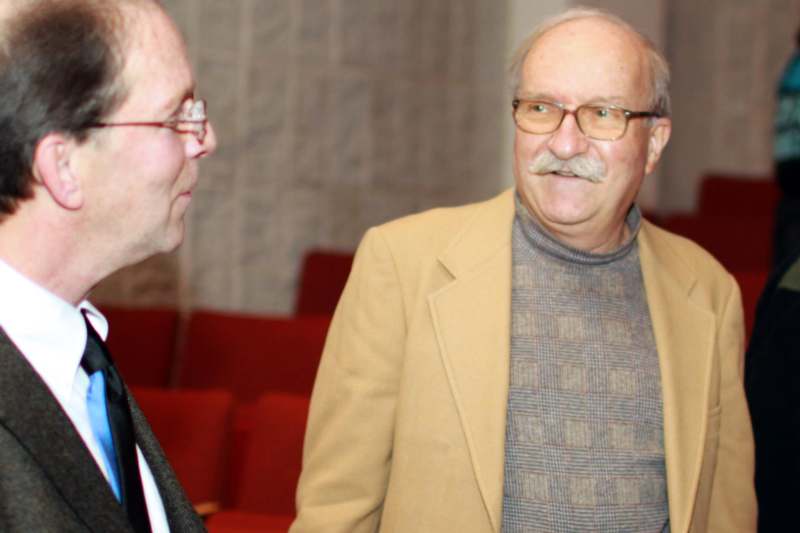
Professor Watson talks with Gary LaFollette following his presentation.
"On the stage, we are interested in the 'moment," organized and arranged moments of mimesis—“the imitation of an action,” or more accurately, the re-presentation of an action. Here, I feel the need to take a line from Bill Placher’s LaFollette lecture, now 20 years ago, when he said: “One of the functions of the humanities is to capture the transcendent in the single, ordinary moment”.
"In the theater, we attempt to capture moments and we employ the entity best equipped to represent the dramatic imagination—the actor."
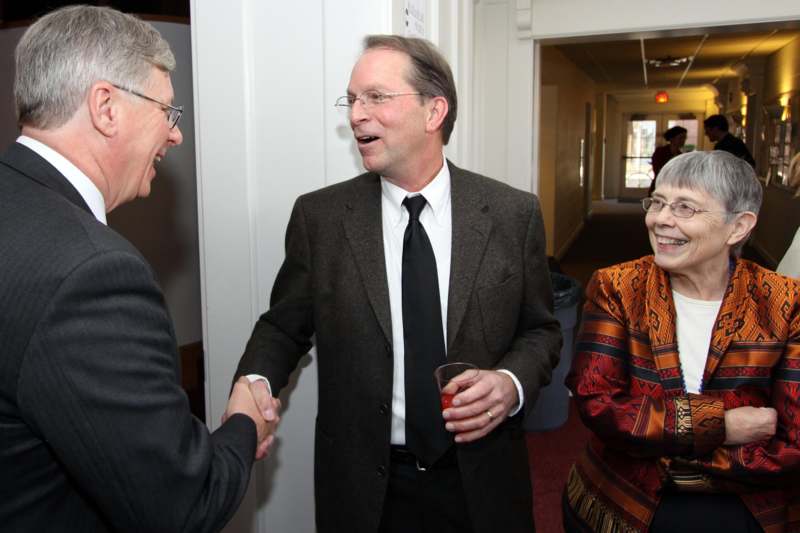
Professor Leslie Day smiles as President Pat White congratulates Professor Watson on his lecture.
"Ghosts are not all together absent in the theater. Those of us who render play scripts and dramatic action for the stage often traffic with the supernatural and embrace the paranormal. It is widely known that we have a well-established relationship with irrationality, phantoms and apparitions, the incredulous, and all things out of the ordinary.
"After all, we celebrated with Dionysus and Bacchus; reveled behind tribal and ceremonial masks; danced until we laughed with Saint Vitus; we fabricated visually captivating hellmouths for our pageant wagons; and we helped daggers float and banquets disappear while we gave voice and movement to the ghosts of Banquo, Caesar, and to Hamlet’s father. And when the physical stage ghost no longer intrigued, we toured in dramas about heredity and the “sins of our fathers,” and then found ourselves in the company of alienated, ghostly characters such as Vladimir and Estragon in Samuel Beckett’s Waiting for Godot.
"And, now, when the work day in the theater is done, we demonstrate our respect of the supernatural by leaving a “ghost light” on the stage so that spirits may negotiate the playhouse safely in our absence."
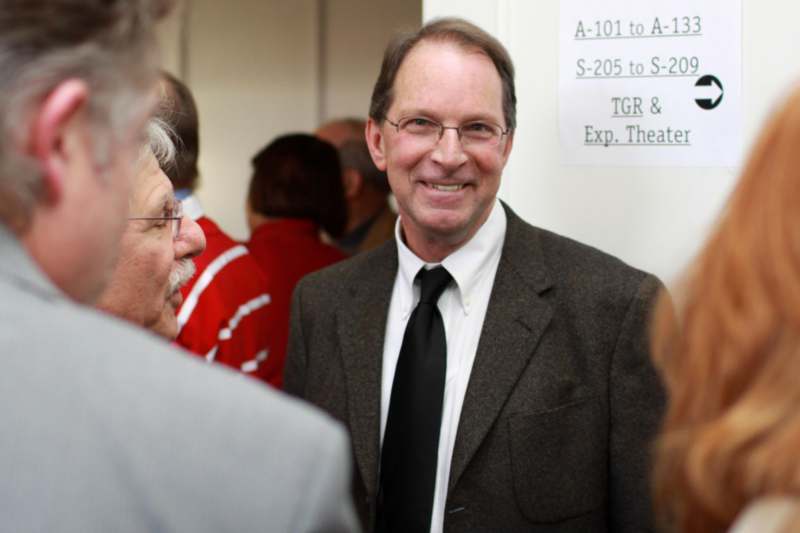
"Sandford Cox said this about the ancient storytellers: “Homer, and his great rival, Hesiod…recited their poems at the great games, in the presence of assembled Greece. They contended for the palm of poesy in strains which have descended to the present time, and will continue to echo down the cycles of coming ages."
"And so my 'Abridgement' between Nathaniel Dunn’s and the graveyard is the theater and its “strains which have descended to the present time.” It is the stage, not this one, here, but its neighbors: Ball and the Experimental. If there are ghosts in Salter, I can assure you that, for me, the phantasm of sound and movement is very much alive and true in those spaces."

